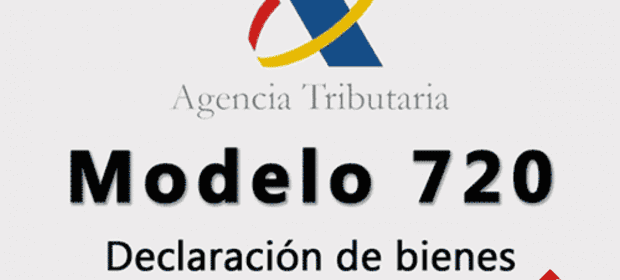Very often we are contacted by expats who have several different pension schemes, and usually they are scattered around different countries. Of course, in an ideal world pensions would be MUCH easier to keep track of, but unfortunately efforts to ‘harmonise’ pensions across the EU haven’t made much headway. Pensions are inherently linked to the taxation system of that particular country (because you usually get tax relief on the contributions you make) and so it can be very difficult to consolidate them or even move your ex-employer’s scheme to your new company scheme.
The good news is that this CAN be done with UK pensions. So, if you are an expat who has previously worked in the UK, you can consolidate them all into one pot. That ‘pot’ can be either be left in the UK, using what is known as an ‘International SIPP’, or taken out of the UK using a QROPS (Qualifying Recognised Overseas Pension Scheme).
Both the SIPP and the QROPS route can offer excellent flexibility when it comes to taking benefits, as well as very favourable estate planning opportunities (being able to pass on the full value of the ‘pot’ upon death, for example). More on that later.
BUT!
There’s a but, of course. It’s not suitable for everyone and it depends on a host of different factors. Moving any pension requires regulated advice from suitably qualified and licensed advisers. There is a proper process to go through, a process which is designed to ensure that you only transfer if it is clearly in your best interests to do so. Indeed, if you are considering moving a defined benefit (final salary) pension scheme then extra care should be taken as you will be giving up a guaranteed income, and you may find that you will need advice from two advisory firms. The regulated process is there for your protection!
Everyone’s situation is different of course, and a licensed advisory firm will look at your financial situation as a whole. But here are some general rules of thumb;
A QROPS may be suitable for you if all of the following applies to you;
- You have UK pension schemes with a total transfer value of over £100,000
- You have left the UK and do not intend to return
- You live in the EEA (European Economic Area) and you don’t intend to leave in the next 5 years*
*An OTC (Overseas Tax Charge) was introduced in 2017 which means a 25% tax charge would be applied to a transfer unless both the new pension scheme AND the pension scheme member are based in the EEA (or both are in the same country).
An International SIPP may be suitable for you if all of the following applies to you;
- You have UK pension schemes with a total transfer value of over £100,000
- You have left the UK but there is a chance you will return
- You are unlikely to be affected by the LifeTime Allowance (LTA)** of £1,030,000. If this is likely to be an issue for you, QROPS should be considered
**the LTA is the overall limit of tax-privileged pension funds you can accrue in the UK, before a Lifetime Allowance tax charge applies.
What are the benefits of consolidating?
What next? As I said before, transferring a pension requires regulated advice from suitably qualified and licensed advisers, and a full assessment needs to be carried out. If it is established that a transfer is indeed in your best interests, what can a QROPS or International SIPP offer you?
Well, both can provide you with;
-
- Flexi-Access. From the age of 55, a 25% lump sum (in some cases 30%) is available (tax-free in the UK but take care as it may be taxable in your country of residence). Thereafter you have the option of flexible drawdown (taxable income). This means you choose when you start taking your income, and you can vary how much you want to take
For those with defined benefit / final salary pensions, this can mean turning the promise of a fixed income for life into a large pot of capital you can access flexibly.
-
- Control of the Investment Pot. You are not giving up your savings for an annuity; the ‘pot’ is invested, and you can control how it is managed, according to your risk profile
- Currency Choice. Even with the International SIPP option, you can change the currency of your assets from Sterling to Euro. We had clients who took advantage of this a few years ago when the rate was €1.39 to £1, and now they’re pretty glad they did!
- Estate Planning. The pot can be passed on to your beneficiaries on death. With a QROPS the whole pot can be passed on free of tax, while the SIPP (as it is still a UK product) will be taxed at the recipient’s marginal rate only IF the deceased was aged over 75
This can be a real game-changer if you have a large defined benefit / final salary scheme, which typically offers a spouse’s pension of 50% on the death of the member. For example, I have seen many cases where it meant turning a guaranteed income for the surviving spouse of £10,000 per annum into a potential lump sum of over £500,000. Tough choice!
- Lifetime Allowance. In the UK, pension savings of over GBP 1,030,000 are taxed at either 25% or 55%. Once a QROPS has been used however, the LTA no longer applies. So, if you are anywhere close to the LTA, a QROPS should be considered
Elephant in the Room
I have deliberately not mentioned the B-word; Brexit! That’s because at the time of writing, with only 50 days until the UK is due to leave the EU, we are still no clearer as to whether the UK will leave with a deal, without a deal, or will leave at all.
The current opportunities for expats to consolidate their UK pensions may well be at risk depending on the outcome of Brexit. The rules could be changed; we just don’t know. So, it’s advisable to act now before any doors are closed.
At Spectrum we offer a free initial analysis of your UK pensions by our highly qualified advisory team, as well as our ongoing advice on portfolio management and the various retirement options. You can read some feedback from existing clients here
















